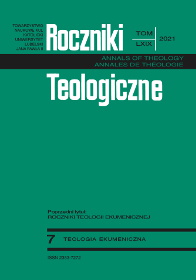Secularization, Confessional Ideology, and Society
Abstract
Social life is the keystone of the existence of a human and a people and, by extension, of an entire civilization. In this essay I will try to present the way in which religious affiliation has influenced the historical evolution of society and interpersonal relationships. Therefore, after analyzing the relationship between the Christian denomination and the capitalist economy in the context of the secularization process facing the peoples of Europe, I will present the consequences of the desacralization of the world for the spiritual health of modern humans and the consequent sociological implications which tend to create faults in the contemporary world. Communion is replaced by separation, solidarity by individualism, and the inner emotional balance of human beings is jeopardized by the spiritual chaos that seems to condemn the whole society to loneliness and disintegration.
References
Boia, Lucian. Occidentul. O interpretare istorică. Bucharest: Humanitas, 2013.
Boia, Lucian. Românii și Europa. O istorie surprinzătoare. Bucharest: Humanitas, 2020.
Carp, Radu. “Religia în sfera publică sau în afara ei?” Romanian Political Science 12, no. 1 (2012):1: 25–30.
Cașu, Igor. “Politică, societate și cultură în Sud-Estul și Vestul Europei: studio comparativ.” In Imperii. Naționalisme și sisteme politice, edited by Igor Cașu, 85–152. Chișinău, Moldova: CEP USM, 2009.
Cotelnic, Teodor. “Rusificarea Basarabiei sub dominația Țaristă (1812–1918), Philologia 67(2015): 47–59.
Frankl, Viktor E. Teoria și terapia nevrozelor (Introducere în logoterapie și analiza existențială). Bucharest: Editura Trei, 2008.
Lallement, Michel. Histoire des idées sociologiques. Vol. 1. Des origines à Weber. Paris: Nathan, 1993.
Lorenz, Konrad. Cele opt păcate capitale ale omenirii civilizate. 2nd ed. Translated by Vasile Poenaru. Bucharest: Humanitas, 2001.
Luchini, Albert. “Ideologies, croyances religieuses.” In Encyclopedie de la sociologie. Paris: Larousse, 1975.
Lupsor, Andreea. “Ce am moștenit de la otomani?” Historia. Accessed, March 15, 2020. https:// www.historia.ro/sectiune/general/articol/ce-am-mostenit-de-la-otomani.
Mandache, Mircea. “Procesul de secularizareși modernizare a societății europene.” Revista Română de Sociologie 10,no. 1–2 (1999): 27–38.
Paleologu, Alexandru. Moștenirea creștină a Europei. Cluj-Napoca: Eikon, 2003.
Pop, Florina. “Moştenirea habsburgică a Ardealului. De ce e Transilvania altfel: ‘Aici este o Europă în miniatură’.” Cluj-Napoca, February 14, 2015. Accessed February 10, 2020. https://adevarul.ro/locale/cluj-napoca/mostenireahabsburgica-ardealului-e-transilvania-e-altfel-aici-europa-miniatura-1_54df326a448e03c0fd99b24f/index.html.
Popescu, Dumitru. Hristos, Biserică, Societate. Bucharest: Institutul Biblic și de Misiune al Bisericii Ortodoxe Române Publishing House, 1998.
Popescu, Dumitru. Omul fără rădăcini. Bucharest: Nemira, 2001.
Popescu, Dumitru. Teologie și Cultură. Bucharest: Institutul Biblic și de Misiune al Bisericii Ortodoxe Române Publishing House, 1993.
Raiu, Cătălin. “Europa are nu doar o tradiție creștină venerabilă, dar și structuri politice născute din sau prin raportare la creștinism.” Sinteza, December 19, 2019. Accessed March 30, 2020. https://www.revistasinteza.ro/catalin-raiu-europa-are-nu-doar-o-traditie-crestina-venerabila-dar-si-structuri-politice-nascute-din-sau-prin-raportare-la-crestinism.
Romanides, John. Teologia Patristică. Translated by Gabriel Mândrilă. Bucharest: Metafraze, 2011.
Shiner, Larry. “The concept of secularization in empirical research.” Journal for the Scientific of Religion 4, no. 2 (1967): 207–20.
Stăniloae, Dumitru. Reflecții despre spiritualitatea poporului român. Craiova: Scrisul Românesc Press, 1992.
Copyright (c) 2021 Roczniki Teologiczne

This work is licensed under a Creative Commons Attribution-NonCommercial-NoDerivatives 4.0 International License.





